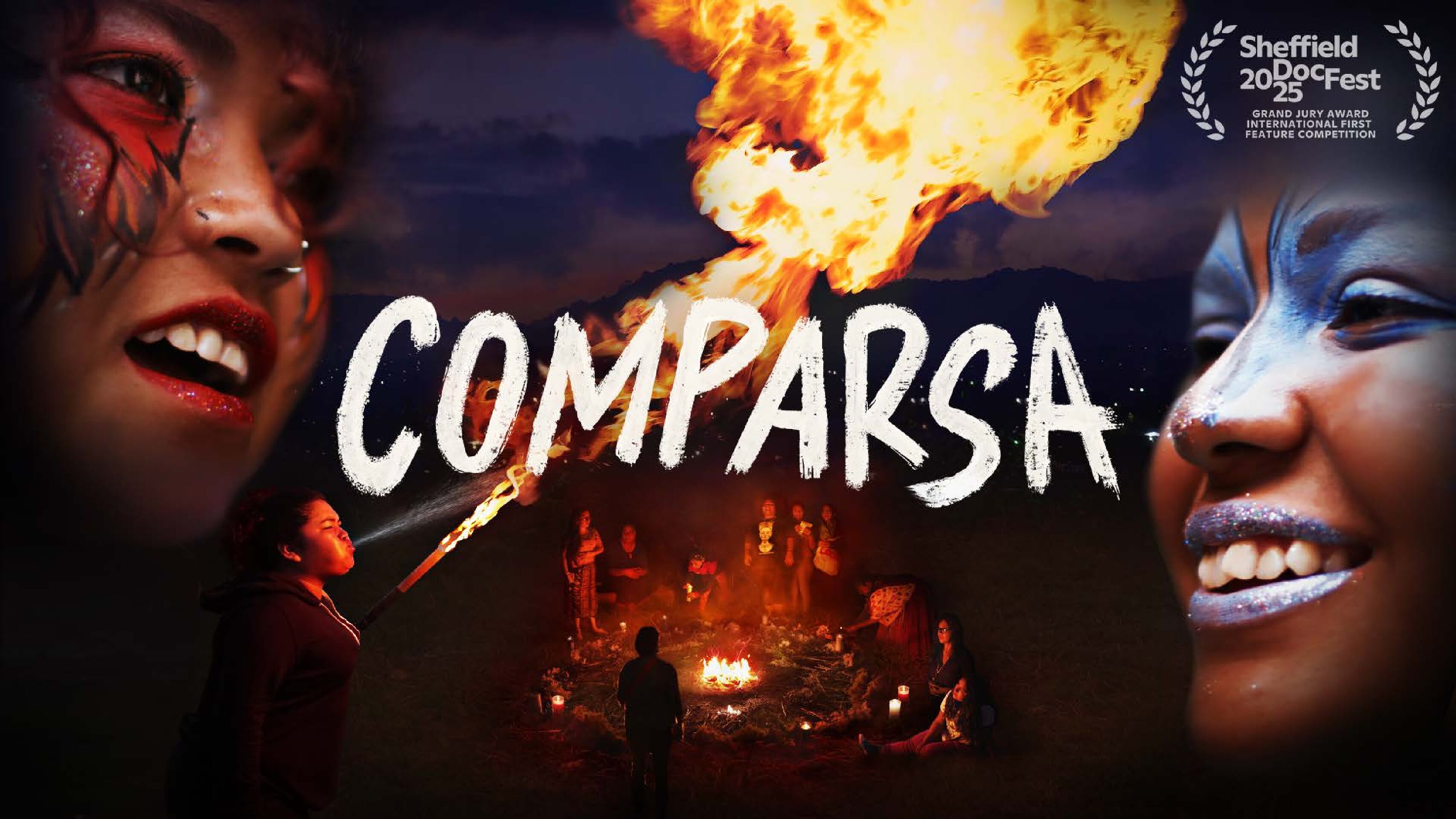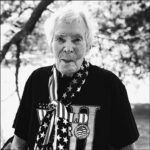Standing in the dusty heat of Guatemala, three Wayland High School graduates found themselves recalling a motto from their high school theater director, two decades after their graduation: “The story comes first.” Toting documentary cameras and mics, Vickie Curtis, Doug Anderson and Anna Hadingham reminded each other of what their teacher Richard Weingartner said.
“That’s something that stuck with us our whole lives, and was definitely something that drove that decision-making process of the film, to be able to come up with something that’s universally powerful,” Hadingham said.
On July 30, the trio premiered their documentary, “Comparsa,” at the Woods Hole Film Festival from July 26 to August 2. This was a culmination of decades of friendship, a six-year production process, and following the story of young Guatemalan women protesting violence through art. The group met in middle school, bonding over theater productions at Wayland High School, including “Into the Woods” and The Who’s “Tommy.”
“That’s really how Anna, Doug, and I all became friends, through doing theater together,” Curtis said. “Doug and I did a summer theater camp at the Little Theater at Wayland High school when we were in fifth grade, or fourth grade or something like that, and just fell in love with using performance as a tool to build community and as a tool to express ourselves.”
After graduation, their paths diverged. Anderson’s took him to Ciudad Peronia, a suburb of Guatemala City labeled as a “red zone,” a government distinction marking areas of severe gang and drug-related violence. “It’s a place that has a very vibrant and rich culture, but also a lot of problems, including poverty and violence and government corruption,” said Anderson, who co-directed the film.
Hadingham moved to Ciudad Peronia in 2007 to volunteer at a nongovernmental organization as a youth advocate. There, she encountered Lesli and Lupe Canela Pérez, two sisters dedicated to using art as a medium for activism. The mission of their nonprofit, Peronia Adolescente, convinced her to stay in the community for 10 more years as an employee.
“Over the years, we worked on many creative projects [like] theater and street performance, but also worked on strengthening the social fabric of the community,” Hadingham said. “It’s something that’s informed the trajectory of my career and life.”
“Comparsa” centers on two charismatic young women, Lesli and Lupe Pérez. The story begins in the aftermath of a notorious 2017 fire at a state-run children’s home, which claimed the lives of 41 teenage girls after they had protested abuse at the facility. Among the dead was Lesli and Lupe’s close childhood friend, Siona. The film captures the vibrant street performances and unyielding bravery of these young women as they take on the state, breaking the silence surrounding gender-based violence.
“That was one of the things that really catalyzed this sense of urgency, that we have to do something about this,” Hadingham said. “We have to do something to fight the ongoing, continual violence and just complete devaluation of the lives of young women.”
At the time, Curtis, an Emmy-winning film writer and high-school friend of Hadingham’s, was searching for a film to direct. Having told the stories of social media afflictions in the documentary “The Social Dilemma” and environmental issues in the film “Chasing Coral,” she said she wanted to tell a story about someone taking action against the world’s problems.
“I was really sort of exposed to a lot of stories that were speaking on all of the problems and the crises that we face, and I was hungry for a story that would show people living the solutions,” Curtis said.
Curtis and Anderson, who had been working as a filmmaker and a sound recording artist in New York, met up with Hadingham in Peronia in search of that story. There, Hadingham introduced her old friends to her new ones, and it became clear that Lesli and Lupe embodied Curtis’s vision.
“We meet Lesli and Lupe on the first day we’re in Guatemala, and within, like, 15 minutes, it’s obvious that they are so charismatic, so funny, so wise, so open-hearted and open to us and willing to share,” Curtis said. “They just really wanted to collaborate on telling this story with us.”
With Anderson’s experience in sound production, Curtis’s writing chops, and the perfect protagonists, the Wayland graduates had the groundwork for an incredible documentary, but Curtis said their secret weapon was Hadingham.
“The fact that Anna had spent 12 years as part of the community was incredibly valuable,” Curtis said. “We couldn’t walk down the street without people recognizing Anna — she’s tiny and has bright orange hair. Interrupting our scenes were people just coming over to chat.”
Their project started with a test shoot in 2019. At first, the group intended to produce a short film about the group centered around a comparsa or carnival troupe with a political message that was dedicated to the lives lost in the fire.
Then Covid-19 hit, halting the short film vision, but the crew sent a camera to a local filmmaker, Edgar Tuy, who continued production throughout the pandemic. In 2022 and 2024, the crew returned to Guatemala to film a feature-length documentary. Over the course of filming the film, the Canela Pérez sisters evolved from subjects to co-producers and co-writers as they assumed a collaborative role with the filmmakers.
“It wasn’t that we would show up and tell them what we were going to do,” Anderson said. “They would bring ideas to the table like, ‘Oh, maybe you can follow us to this. Maybe that would be a cool thing to shoot.’ They were active participants in helping devise what we planned to film.”
Curtis said one of the most powerful lessons she learned as a student in Wayland is that art can be a form of activism — a lesson brought to life by the Canela Pérez sisters as they responded to tragedy. “We really saw Lesli and Lupe employing that same philosophy and those same strategies in Guatemala to deal with some pretty huge and harrowing problems,” she said.
Now, the group has returned to Massachusetts for the premiere of “Comparsa” at the Woods Hole Film Festival. Anderson said he feels lucky to share the story set in a completely different part of the world, in a place he calls home.
“It’s so great that we’ll be able to invite our friends and family from our community to come,” Anderson said. “I think that we all feel kind of this network of support around us that extends from our family and close friends, to our teachers, to our classmates.”
The film just won a Grand Jury Prize at Sheffield DocFest in the UK and is gaining international attention. This is the group’s first feature documentary. Anderson and Curtis, who both work in the documentary field, co-directed the film, and Hadingham produced. All three graduated from Wayland High in 2003. “Vickie, Anna and I credit our Wayland education, particularly its rigorous academic and arts program, for our commitment to this kind of in-depth nonfiction storytelling with a social purpose,” Anderson said.
Additional team members include Oscar-nominated producer Olivia Ahnemann (originally from Marblehead) and cinematographer Sebastián Lasaosa Rogers (originally from Concord). Sebastian died tragically this year at the age of 35.
In her review of the film, critic Sarah G. Vincent wrote, “Even though femicide is a heavy topic, watching young people with the energy and faith in their ability to change the world is not, which is why ‘Comparsa’ works and is not like most documentaries. The documentary deliberately feels like an expansion of their creative protest as the subjects play an active role in the direction of the film, with a brief glimpse of Curtis and some audio revealing Anderson’s voice.”
















